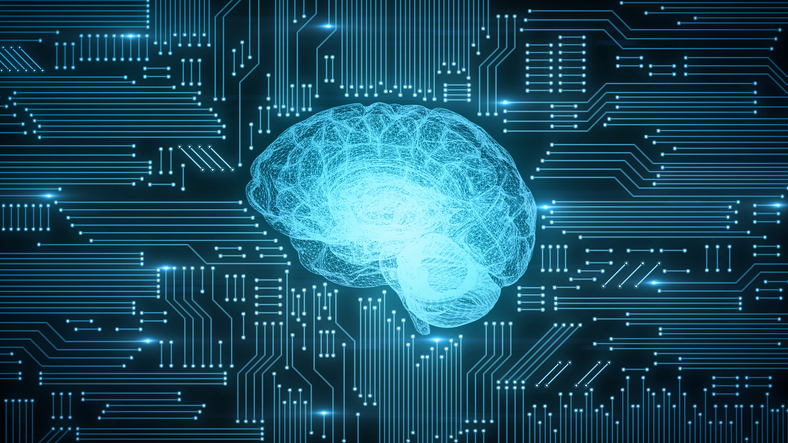
Memory is the stored collection of knowledge and experiences of life. However, age and injury can make recall of memories difficult. Startup Nia Therapeutics aims to overcome that problem with a medical device that stimulates the brain.

Transforming Clinical Content with Ambient & Generative AI
Sheila Bond, MD, talked about the latest trends regarding integration of AI in healthcare.
Memories that form in the mind produce signals that can be read. In a good memory state, the signals appear a certain way, said Nia Founder and CEO Dan Rizzuto. Nia’s technology reads these brain signals. When the signals move toward a bad memory state, the device delivers targeted electrical stimulation to nudge the brain back to a good state of memory.
“It’s like an orchestra, all sorts of instruments playing together,” Rizzuto said of the brain signals. “In a bad memory state, it’s out of tune. The conductor is not doing his job. By administering brain stimulation at the right time, at the right location, we can tune the orchestra. We can bring the oscillations back into the beautiful sound.”
Radnor, Pennsylvania-based Nia was one of 10 startups that presented during the recent MedCity News Precision Medicine Conference. The company was judged the winner in the life sciences track.
“We reached the decision after lengthy deliberation,” said Yizhen Dong, partner at Global Founders Capital and one of the judges. “It has been based mostly around the company generating initial hints of clinical efficacy which somewhat de-risks the product and the large market opportunity they are going after.”

How Lantern Delivers ROI Through Smarter Healthcare Navigation
Dickon Waterfield discusses why Lantern's navigation works.
The Nia technology got its start from research at the University of Pennsylvania. The device consists of four electrical leads surgically implanted in the brain. The external component is an earpiece worn while the patient is awake. The Defense Advanced Research Projects Agency awarded Penn $24 million in funding, some of which was used to build a prototype. Nia’s Smart Neurostimulation System requires no input from the patient. It constantly decides when to stimulate the brain and where in the brain to send the signal.
The hardware connects to Nia’s software in the cloud, where algorithms analyze each patient’s memory signatures, Rizzuto said. The artificial intelligence-driven analysis leads to a personalized therapy that determines the location and timing of a patient’s brain stimulation. The first indication Nia is targeting is memory loss from traumatic brain injury.
For more than 20 years, deep brain stimulation has been used to treat the tremors of Parkinson’s disease. It has since found additional applications for treating essential tremor and epilepsy. However, the early applications of deep brain stimulation did not do any brain sensing to assess brain activity, Rizzuto said.
Deep brain stimulation technology moved forward with FDA approval in 2013 of Neuropace’s RNS System, an implantable device that provides electrical stimulation to treat epilepsy. The Mountain View, California-based company’s medical device continuously monitors the brain, learning the activity that is normal for the patient. Based on AI-driven analysis, the device delivers the appropriate stimulation to the patient to prevent seizures. Nia’s device follows the path blazed by Neuropace, Rizzuto said.
“It’s the same approach of delivering stimulation, just delivering it to new domains,” he said.
Nia’s medical device will go through the FDA’s premarket approval pathway, which requires two clinical trials, one to show feasibility and a second study to demonstrate safety and efficacy. The company has already met with the FDA to review parts of the clinical and engineering plans.
Nia hasn’t done any animal studies and there no plans to do so. It’s not possible to test the device in animals because they do not have verbal memory, Rizzuto said. Memory will be tested by assessing a patient’s ability to remember lists of words. Rizzuto said that the medical literature supports the use of list learning as an indicator of memory in daily life.
Rizzuto said Nia is about 18 months away from starting its first clinical study, which will cost an estimated $13 million to $15 million. The company will need to raise cash to conduct that research. To date, Nia has raised about $4.4 million in financing, plus $1.2 million from Department of Defense contracts.
Rizzuto said he’s currently raising another $4 million that will get the company to its next testing milestone next year. The military is interested in the research, and the U.S. Army has awarded Nia a $1 million contract, which the startup will use to complete engineering work on the medical device.
“Veterans have a strong burden of traumatic brain injury,” Rizzuto said. “The most common symptom of having a brain injury is memory loss and there are no effective treatments currently approved by the FDA.”
Image: wigglestick, Getty Images






